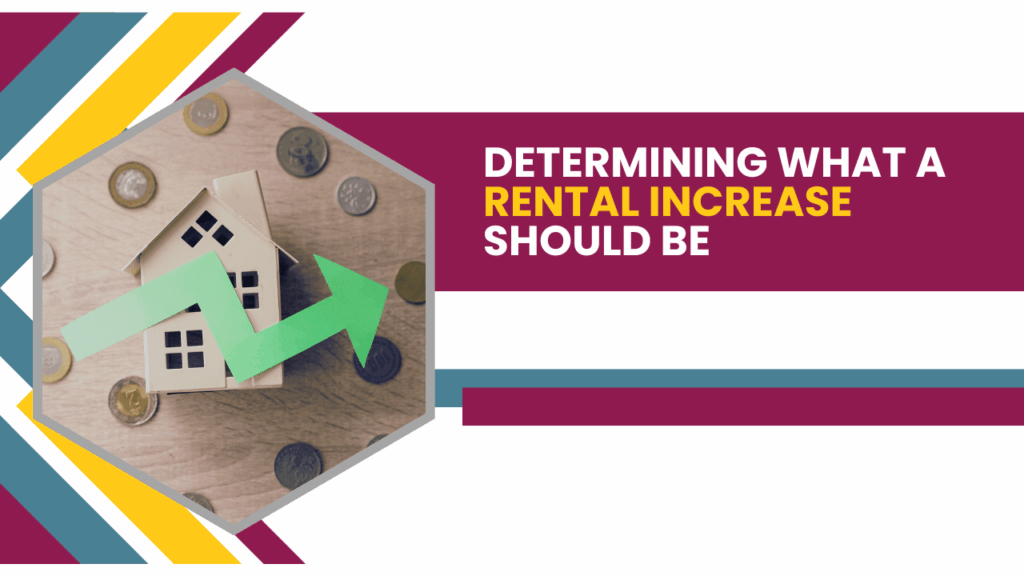
Rental increases, while necessary, can be uncomfortable. Especially if you like and respect your tenants. When you have residents in place who have paid rent on time, contributed to the care and maintenance of your investment property, and followed the requirements of the lease agreement, the last thing you want to do is chase them away. You want to retain those residents and enjoy another year of stress-free renting.
But those rental increases are important, especially when the market supports them.
Determining the right rental increase is the best way to strike a balance between tenant retention and increased earnings. As Las Vegas property management experts, we are strategic when it comes to raising the rent at renewal time.
Here’s how we do it.
Some Very Good Reasons to Raise the Rent
Rental increases are necessary, and tenants are going to expect them.
Increasing the rent every year is not only about increasing your profitability. It’s also about maintaining your property. This involves ongoing expenses, and many of these tend to increase over time. Taxes may go up, maintenance costs fluctuate, and insurance premiums may be adjusted. Rental increases allow landlords to keep pace with inflation to ensure the value of the rent doesn’t drop over time. Your rental increase will also cover escalating expenses like utilities, property maintenance, or improvements.
Another good reason for your rental increase is the need to remain competitive in the market by aligning rental prices with those of comparable properties. People are suspicious of a rental home that’s priced too low. Why is it so cheap, they’ll wonder…?
However, balancing this increase while sustaining positive tenant relationships is an important part of maintaining occupancy and minimizing turnover.
Lately, keeping up with inflation has been enough of a reason to raise the rent. As we said: tenants expect that their rent will go up, and as long as you’ve provided a fantastic rental experience and you’re not raising it too much, you’re likely to retain those tenants.
A Question of Timing: When to Increase the Rent
Let’s start with the easiest moment at which to raise the rent: when your property is vacant.
When you’re listing a rental home on the market after a period of vacancy or turnover, you can increase the rent to whatever the market currently demands. There’s no concern about running off the tenant currently in place because you are working with an empty home.
The best way to arrive at the right rent is to study the local rents and get to know the competition in order to settle on a rental price that’s both competitive and profitable. The market likely looked much different the last time you were listing this home, and your rental amount should reflect that.
Increasing the rent on an occupied property is a bit more nuanced. You’ll have to time the increase with the lease renewal.
Check your lease agreement before you increase the rent. How much notice are you required to provide your tenants? Nevada state law requires 60 days of notice for most properties, unless it’s a month-to-month tenancy in which 30 days of notice are sufficient.
You want to provide reasonable notice before raising the rent in the spirit of fairness and transparency. The best way to approach rent increases is to be upfront and honest with your tenants. Let them know well in advance that their rent will be increasing when their lease is up for renewal. Provide them with a clear explanation of why the increase is necessary and how it is calculated.
When residents feel like they are being treated fairly and honestly, they are more likely to accept a rent increase without too much pushback. Offer your tenants a lease renewal in writing with the new proposed rent.
Be sure to document everything related to the rent increase and the renewal of the lease. Having it in writing ensures that both you and your residents have a clear understanding of the new rent amount. Make sure to update the lease agreement to reflect the new terms and have both parties sign the updated lease.
Then, give your tenants a specific amount of time to respond. You’ll want to know as soon as possible if you’re renewing the lease or preparing for a turnover.
Factors to Consider When Determining a Rental Increase
As you are trying to determine how much to set the rent for the new lease term, these are the things you’ll want to factor into the decision-making process:
- Understand the Local Las Vegas Rental Market
The first step is to research rental prices in your area to ensure competitiveness. Are similar properties down the street charging more or less? A lot of landlords will use platforms like Zillow, Rent.com, and others in order to understand and gauge market trends. This is a good starting point, but this data is not perfect. For the best and most accurate analytics, contact a Las Vegas property management expert. Our team, for example, collects a lot of data and insights around market rents, tenant demands, and days on market. We can help you understand where your rental value should land given the competing properties and the average rents.
- Consider Inflation
Inflation is a factor in what people expect to pay for anything, including housing. From groceries to travel to rents, inflation affects everything, including your own property ownership costs. Typically, inflation rates hover around 2–3% per year. Many landlords use this figure as a baseline for modest and fair rental increases annually. With inflation being higher over the last couple of years and market rents also rising, an increase that’s a bit higher than that 2 or 3 percent baseline is not unusual.
- Assess Property Upgrades or Improvements
There’s not much a property owner can do about market prices or inflation. However, one thing you can control is property conditions. Have you made significant investments in your rental property, such as upgrading the appliances, improving energy efficiency, or renovating communal areas? If so, these improvements add value to your property and may justify a higher rent increase. If tenants are now enjoying included internet services, a video doorbell, or in-unit laundry, your higher rental increase is justified.
- Review Tenant Satisfaction
Tenant satisfaction is an important part of your rental increase considerations. Long-term tenants who consistently pay rent on time and respect your property are a valuable asset. Assess the relationship you have with your tenants before increasing rental prices. Small increases tend to retain great tenants while helping you manage cost fluctuations. Keeping your increased rent at or just below the market rents is a great way to keep good tenants in place. They’ll know it’s more expensive to move, and when they love where they live, they’ll stay and pay a higher rent.
- Evaluate Vacancy Rates
The vacancy rate in the Las Vegas rental market right now is low. That’s good news when it’s time to raise the rent, and this is a metric that you always want to look at when you’re determining how much of an increase to propose. If your area has high vacancy rates, increasing rent too much could push your tenants to find a more affordable option. On the other hand, low vacancy rates signal strong housing demand and justify a higher increase.
- Consider Costs of Tenant Turnover
Having your tenants choose to leave after a significant rent increase can cost you more than you might gain. You’ll face expenses related to advertising, screening, and preparing the property for new tenants. Smaller increases often help mitigate these costs while still providing you with the extra revenue you need to operate a profitable investment. Turnover and vacancy costs are always best when avoided.
Communicate Rental Increases Effectively
Higher rents are never a tenant’s favorite news, but how you approach the discussion can make all the difference in your relationship. Here’s how to do it professionally and effectively:
- Provide Advanced Notice
Providing plenty of notice not only keeps you compliant but also shows consideration for your tenants.
- Be Transparent
Explain the reasons for the increase, such as rising costs, improvements to the property, or inflation adjustments. Tenants are more likely to accept an increase if they understand it’s justified.
- Keep It Positive
Frame the increase as a way to maintain the quality of their living experience. For instance, highlight improvements you’ve made or services you’re providing, such as faster repairs or added amenities.
- Offer Incentives
If possible, sweeten the deal. Offer a professional carpet cleaning or a new appliance. These small actions can offset the impact of the increase, keeping your tenants happy.
- Put It in Writing
Follow up any in-person or email communication with an official written notice. A clear, concise, and professional letter leaves no room for misinterpretation.
Rental increases are a balancing act between ensuring profitability and maintaining respectful tenant relations. By thoroughly researching the market, considering your property’s unique situation, and practicing open communication, you can ensure a smooth transition during rent adjustments.
 We can help when it’s time to establish and communicate an increase. Please contact us at New West Property Management. Our team expertly manages residential rental homes in Las Vegas and throughout Clark County, including Henderson and North Las Vegas.
We can help when it’s time to establish and communicate an increase. Please contact us at New West Property Management. Our team expertly manages residential rental homes in Las Vegas and throughout Clark County, including Henderson and North Las Vegas.
